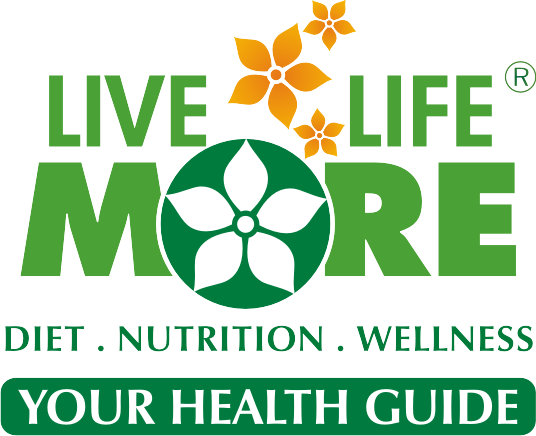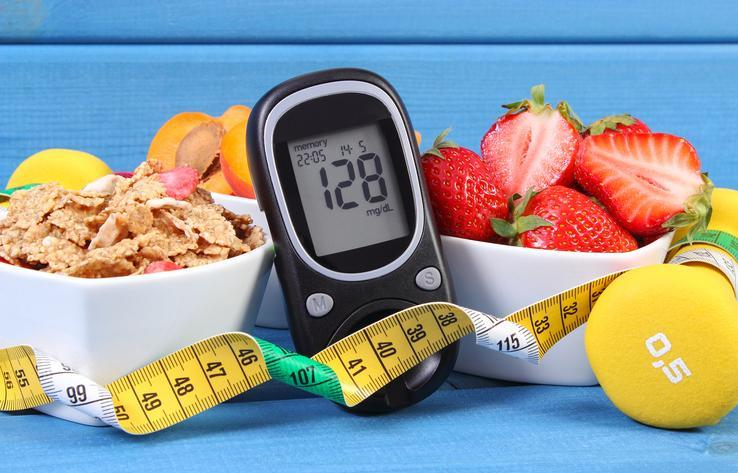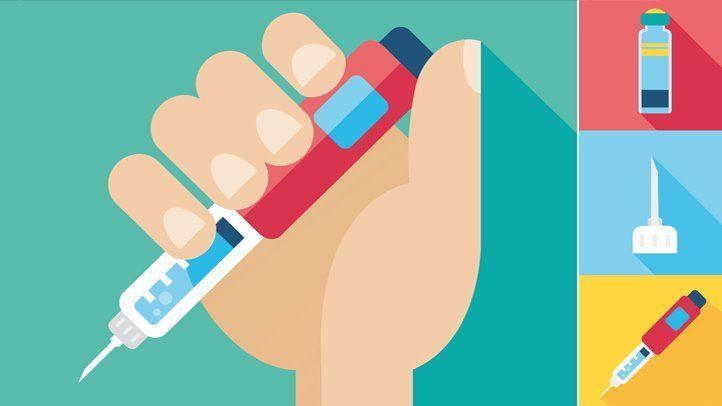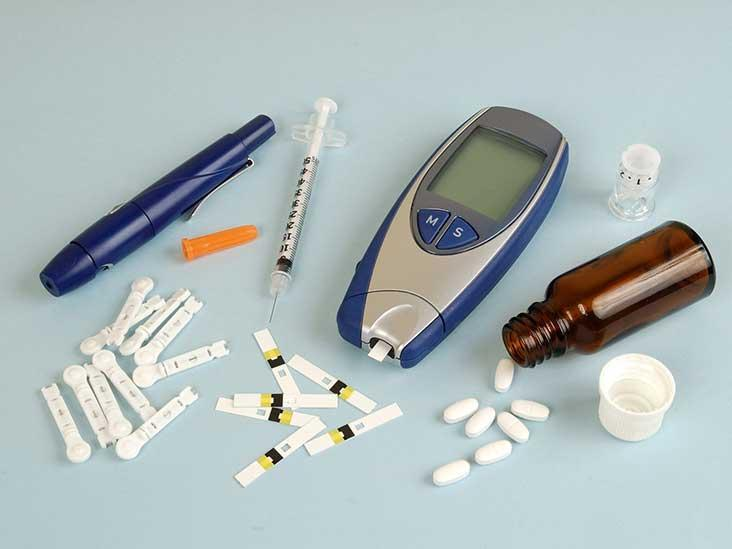Diabetes: Symptoms, Prevention & Indian Diet to Avoid Life-threatening Problems
Increased hunger, sudden weight loss or feeling tired all the time?
These can all be signs of diabetes mellitus commonly known as diabetes. Every 10 seconds somebody dies because of diabetes causes and it affects more than 442 million people worldwide (1) (2).
Diabetes is one of the leading causes of death and if not controlled in time, it can cause blindness, kidney failure or heart disease. It can shorten your life by up to 10 years, reduce the quality of life drastically beside making you depressed and damaging your nerves (3).
Diabetes is a serious chronic disease, which you should start controlling and treating as soon as possible. In today’s blog, you’ll learn everything about diabetes, how to prevent it and treat it so you can live a longer and healthier life.
You’ll learn:
- What is diabetes and its types
- The symptoms of diabetes
- The causes of diabetes
- The complications of diabetes
- The prevention and treatment of diabetes
What is diabetes?
Diabetes mellitus or just diabetes isn’t just any rare disease. In fact, it affects more than 442 million people worldwide and is one of the leading causes of death (4) (5).
Diabetes affects how your body uses sugar. When you have diabetes you have a problem with insulin.
Insulin is a hormone, which allows your body to use sugar as energy. The problem arises when your body doesn’t produce enough insulin or can’t use it properly.
This leads to high blood sugar and complications such as blurry vision and fatigue. Diabetes can also cause long-term problems as severe as heart disease or blindness.
What are the types of diabetes
There are four types of diabetes:
-
Type 1 diabetes
– It’s an autoimmune disease. It’s rare, only 10% of people with diabetes have this type. Your immune system attacks and damages your cells in the pancreas. The pancreas is an organ responsible for creating insulin. But, when it’s damaged you don’t produce insulin and get high blood sugar.
-
Type 2 diabetes
– This is the most common type of diabetes. It occurs when your body is resistant to the insulin it creates. This means your body can’t use insulin properly and it leads to high blood sugar and complications.
-
Prediabetes
– It occurs when you have higher blood sugar, but not as high as type 2 diabetes. People who have prediabetes and won’t change their diet & lifestyle have a 15% – 30% chance of getting type 2 diabetes (6).
-
Gestational diabetes
– It’s the type of diabetes that occurs during pregnancy. It causes high blood sugar and can negatively affect a baby’s or mother’s health.
Now that you know what is diabetes and its types, let’s look at some of the diabetes symptoms.
The Symptoms of diabetes
The diabetes symptoms depend on the type of diabetes and level of elevated sugar. Some of the most common symptoms of type 1 and 2 diabetes are:
- Increased hunger and thirst
- Weight loss
- Frequent urination
- Blurry vision
- Extreme fatigue
- Slow-healing sores
Prediabetes and gestational diabetes usually don’t have symptoms.
Be careful with the symptoms of diabetes. They can be very subtle and hard to spot. However, the longer you let it uncontrolled, the more severe could be the complications. Let’s now look at some causes of diabetes.
The Causes of diabetes
There’re different causes of different types of diabetes.
Type 1 diabetes
The cause of type 1 diabetes remains unknown. All we know is that it’s an autoimmune disease.
This means that your body confuses your healthy cells with cells of bacteria or viruses. It’ll attack its healthy cells and destroy the cells in your pancreas. This leads to no or low levels of insulin, which is a major cause of diabetes.
Genetics and your environment can play a role as well. However, weight isn’t considered to be a cause of this type of diabetes.
Type 2 diabetes & Prediabetes
Type 2 diabetes and prediabetes have similar causes. It happens because your body becomes resistant to insulin. Although we don’t know exactly why it happens, we assume it’s because of genetics and lifestyle.
Obesity plays a big role and can massively increase your chances of getting these types of diabetes.
They run in families and with bad genes you’re more likely to get it. If one of your parents has diabetes, you have 40% of getting it, if both, you have a 70% chance (7).
Gestational Diabetes
Gestational diabetes occurs because of hormonal changes during pregnancy. When a woman is pregnant, the placenta produces hormones, which makes women’s cells less sensitive to the effect of insulin.
This can lead to high blood sugar during pregnancy and complications.
Women who are overweight or gain weight during pregnancy have a higher risk of getting gestational diabetes.
The Complications of diabetes
High blood sugar can be very dangerous. It can damage organs and tissues in your body. The higher your blood sugar and the more uncontrolled it is, the greater your risk for complications.
The most common complications of diabetes are:
-
Cardiovascular diseases
– Heart attack, stroke or heart disease can be all caused by diabetes. 68% of people with diabetes die at 65 or older from cardiovascular disease and people with diabetes have a 4 times higher chance of dying to heart disease (8) (9).
-
Neuropathy
– It’s a type of nerve damage that can occur because of diabetes. High blood sugar in your blood can injure nerves in your body, most of the time in your legs and feet. About 60 to 70% of people with diabetes have nerve damage (10). This can cause you pain, numbness or burning, depending on severity.
-
Nephropathy
– Nephropathy or kidney damage can be also caused by diabetes. The kidneys contain millions of clusters of small blood vessels. These clusters or filters filter waste from your blood. However, when you have a high level of blood sugar you can damage them. It can lead to waste and fluid building up in your blood. This can cause severe complications like kidney failure.
-
Retinopathy
– Diabetes can also damage the blood vessels of the retina of your eyes. This can lead to dangerous complications with eyes such as blindness. Diabetes is the main cause of blindness for people ranging from 27 to 70 years. However, early detection and treatment can prevent 90% of all blindness caused by diabetes (11).
-
Dementia
– Type 2 diabetes can increase your risk of getting Alzheimer’s disease. This can be caused by brain damage, which often occurs because of the reduced or blocked blood flow to your brain.
-
Hearing loss
– People with diabetes are 2 times more likely to get hearing loss. The cause of this problem isn’t clear yet. However, as in other cases, it can be caused because of the damaged blood vessels.
-
Erectile dysfunction
–Diabetes also increases the risk of getting erectile dysfunction. Up to 60% of men with diabetes over 50 have problems with erectile dysfunction. It also causes it earlier by 10 to 15 years (12).
-
Decreased life-expectancy
– Because of all these complications, diabetes can reduce your life-expectancy for up to 10 years (13). You must catch it early and prevent it as much as possible if you want to live a long and healthy life.
Complications during pregnancy
Uncontrolled gestational diabetes can lead to many complications. These complications can affect not only the mother but also the baby.
The most common complications that can affect the baby are:
- Premature birth
- Increased risk of type 2 diabetes
- Stillbirth
- Low blood sugar
- Jaundice
Mothers can also develop complications such as high blood pressure or type 2 diabetes. She may also need a cesarean delivery.
We have talked about some of the most common complications of diabetes. Let’s now look at prevention and treatment.
Prevention and treatment of diabetes
People with diabetes can still live a long and healthy life if they can control it well. Early diagnosis is the key. We’ll divide this section into 3 small pieces:
- The prevention of diabetes
- The medication for diabetes
- The natural treatment of diabetes
The prevention of diabetes
Unfortunately, type 1 diabetes isn’t preventable. This is because it’s an autoimmune disease, which is caused by the immune system. There’re some things, common for every type, that you can’t control. These include age or genes.
However, many other risk factors are controllable. Most of the preventions include changes in your diet and lifestyle.
If you have been diagnosed with prediabetes, up to 70% of people will eventually be diagnosed with diabetes (14). Why? Because they’re not willing to change their lifestyle & diet.
Here’re a few things you can do to decrease your chance of getting diabetes:
-
Regular physical activity
– Getting regular physical activity will help you with many aspects of your life. It can make you happier, help with obesity and decrease the chances of getting diabetes. Get at least 150 minutes per week of exercise and decrease your chances of getting diabetes.
-
Work on your diet
– Start eating healthy. Decrease your carbohydrate and fat intake. Avoid it as much as possible. Remember, obese people have an 80% chance of getting diabetes and high carb and fat intake won’t help you with that (15).
-
Decrease your weight
– 2 out of 3 people suffer from obesity. Most of the people who have diabetes are obese. It also increases the chances of getting life-threatening diseases like heart failure or diabetes. So it’s very important to start working on your weight. If you lose 7 % of your body weight, you cut your risk of developing diabetes by 60% (16). If you want to learn more about losing weight click here.
These steps are very important in the prevention of diabetes. All 3 together can drastically decrease your risk of developing diabetes. Let’s now look at some medication for people with diabetes.
Types of medications depend on the type of diabetes you have.
Type 1 diabetes medication
When you have this type of diabetes, your body can’t create insulin. That’s what is medication good for, supplying you Insulin.
Insulin is the most common type of medication for type 1 diabetes. However, it’s also used for type 2 diabetes. How much insulin you need depends on the severity. There are a few options like:
-
Short-acting insulin
– begins to work after 15 minutes of injection and lasts for 2 – 4 hours.
-
Rapid-acting insulin
– begins to work after 30 minutes of injection and lasts for 6 – 8 hours.
-
Intermediate-acting insulin
– begins to work after 1 – 2 hours of injection and lasts for 12 – 18 hours.
-
Long-acting insulin
– begins to work after a few hours of injection and lasts for 24 hours.
However, there is also another type of medication. Amylinomimetic drug. It’s an injective medication, which you use before a meal.
It works because of delaying the time your stomach needs to empty itself. It also reduces the production of glucose after meal, appetite and lowers your blood sugar.
Type 2 diabetes medication
When you have type 2 diabetes, your body can create insulin. Unfortunately, it can’t use it well. That’s why type 2 diabetes medications work on lowering your blood sugar and increasing the efficiency of insulin.
Most of these medications are oral drugs, but some are injections.
The most common ones are:
-
Alpha-glucosidase inhibitors
– This medication works by slowing your body’s breakdown of sugar and starchy foods
-
Biguanides
– This medication reduces the amount of glucose your liver produces
-
Dopamine agonist
– We don’t know exactly how does it work. However, it can affect rhythms in your body and thus preventing insulin resistance
-
DPP-4 inhibitors
– Improves your blood sugar
-
Glucagon-like peptides
– Changes the way how your body produces insulin. It also decreases your appetite by slowing stomach emptying.
-
Thiazolidinedione
– It works by decreasing glucose in your liver. It also helps your body to use insulin better.
Gestational diabetes
If you are pregnant and have gestational diabetes you need to monitor your blood sugar throughout the day. Your and baby safety requires to take the necessary steps to decrease your blood sugar.
But exercise and diet sometimes aren’t enough. Around 10 – 20 % of women with gestational diabetes will need insulin medication.
We have now talked about prevention and medications for diabetes. Let’s look at the treatment and natural way to improve your health and control it.
The treatment of diabetes
A healthy diet and lifestyle are an essential part of controlling and improving diabetes. Here’re a few things you should keep in mind when deciding on the food you’ll eat.
Type 1 diabetes
Your blood sugar can rise or fall based on the foods you choose to eat. Starchy and sugary foods make your blood sugar rise rapidly, while fat and protein cause a gradual increase.
The rule of thumb is to limit your carb intake and balance it with insulin doses.
But this is something you shouldn’t do on your own. Work with a dietitian or your doctor and create the right diet plan for improvements. If you need professional help from certified diabetes doctors and dietitians click here.
Type 2 diabetes
Eating healthy can help you control your blood sugar and lose weight.
Like with type 1 diabetes, you should decrease your carb intake. If you want to keep your blood sugar low, you should eat small meals throughout the day.
Try to eat as much of:
- Fruits and vegetables
- Lean protein
- Healthy Fats
Gestational diabetes
Eating well during the nine months of pregnancy is important. It’s important not just for you, but also for your baby.
Eating healthy and having regular physical activity can help you avoid medication.
Avoid eating too much sugar, eat small portions throughout the day and consider contacting dietitians to help you with your diet.
The healthy lifestyle
No matter what type of diabetes you have, a healthy lifestyle can always help. Regular physical activity in accordance with your age, fitness level and exercise can reduce complications by up to 40% (17).
Another factor is smoking. Smoking increases the development of type 2 diabetes by 30 to 40% (18).
Do you like watching TV and drinking sugar-sweetened drinks?
Every 2 hours spent watching TV increase your risk of getting diabetes by 14% (19). Drinking sugar-sweetened beverages regularly increases your risk of getting diabetes by 25% (20).
So make the necessary changes and start avoiding or controlling diabetes today.
But, making the right diet plan which works for you can be tough.
But we are here to help!
Being a unique team comprising a lifestyle disease specialist integrative medicine doctor and an internationally certified nutritionist, along with their special certifications as certified diabetes educators, you can count on us for the best holistic approach with a blend of diet, lifestyle & medicine advice.
With a perfectly-tailored diabetes diet & lifestyle plan and the seasoned professional approach, you’re getting the best there can be.
We’ll start by a one-time detailed consultation and then the plan according to your history, current health status and future health goals.
After that, our nutrition experts will help you create necessary diet changes to control and improve diabetes.
Then we’ll discuss it with you and track your progress over the weeks. If needed, we’ll create the necessary changes.
After that, you can lean back and enjoy living life without constantly worrying about your health. We’ll help you control and improve diabetes, decrease the risk of getting severe complications and lose weight.
Don’t wait for it to get worse! Click the link below and start living a long and healthy life today.
Start Your Healing Journey with Us
Don’t start a diet that has an expiration date. Develop a healthy lifestyle that lasts forever.
Start your journey of treating diabetes with us. Change the way you live, improve your life, decrease the risk of severe complications and start living healthy.
Having diabetes mellitus can make the quality of your life significantly lower. Start treating it with us today and:
- Lose weight
- Prolong and improve your life
- Become healthier & feel better
- Avoid life-threatening complications
Awarded as the number one diet and nutrition clinic in Punjab and the only diet & wellness clinic with an internationally certified combo of nutritionists and doctors, we’re guaranteed to bring you results.
For more than 45 years, we have been changing lives worldwide and helping people. It’s time for you to improve yours too.
So How Can I Start?
We’ll start by a short 45 minutes one-time consultation. There, we’ll understand all your needs, set goals and build a Diabetic Diet Plan to Lose Weight and help you to achieve them. Then we’ll recommend to you one of our plans for your life-change.
After that, all you need to do is follow your plan, treat and control your diabetes and improve your life. It’s fast, simple & effective.
“Pallavi Madam is a great dietician,from the past 1 month i am with her & really enjoying my diet.She keeps a balance of what i like & what i have to eat in order to reduce, she’s like a friend more than a mentor.” – Abhishek Mehta For Weight Loss* Treatment ★★★★★
“Dr Pallavi is my savior….its just been three weeks, and am already feeling the difference in my health, confidence and general well being…kudos to her…and my heartfelt thanks… love her..she is sooooo helpful and supportive and a positive person to be around.”
– Ritu Kashyap For Weight Loss* Treatment ★★★★★
Come and join our thousands of happy customers and become a member of the community of healthy people. Prolong your life, lose weight, eliminate problems and LiveLifeMore.
You’re just a few clicks away from your better future.
Come to the clinic or book an online-session from the comfort of your home and improve your life today.
Join our Diabetic Diet Plan to Lose Weight today.
Sources
1) Curing Diabetes in 7 Steps
2) 10 facts on diabetes
https://www.who.int/news-room/fact-sheets/detail/diabetes
3) Diabetes Life Expectancy
https://www.diabetes.co.uk/diabetes-life-expectancy.html
4) https://www.bariatricnews.net/?q=news%2F112336%2F442-million-adults-have-diabetes-worldwide
5) Diabetes is 1 of the leading causes of death in the world
https://www.who.int/news-room/fact-sheets/detail/diabetes
6) Prediabetes
https://www.health.ny.gov/diseases/conditions/diabetes/prediabetes/
7) Genetics of Type 2 Diabetes—Pitfalls and Possibilities
https://www.ncbi.nlm.nih.gov/pmc/articles/PMC4377835/
8) Cardiovascular disease and diabetes
https://www.heart.org/en/health-topics/diabetes/
9) Heart disease and diabetes
https://www.webmd.com/diabetes/heart-blood-disease#1
10) Peripheral Neuropathy and Diabetes
https://www.webmd.com/diabetes/peripheral-neuropathy-risk-factors-symptoms
11) New Dimensions in Women’s Health
12)Diabetes and Erectile Dysfunction
https://clinical.diabetesjournals.org/content/19/1/48
13) Diabetes Life Expectancy
https://www.diabetes.co.uk/diabetes-life-expectancy.html
14) Prediabetes: A prevalent and treatable, but often unrecognized clinical condition
https://www.ncbi.nlm.nih.gov/pmc/articles/PMC3565426/
15) Diabetes and obesity
https://www.diabetes.co.uk/diabetes-and-obesity.html
16) Weight and Diabetes: Lose Pounds to Lower Your Risk
https://www.webmd.com/diabetes/features/diabetes-weight-loss-finding-the-right-path
17) The importance of exercise when you have diabetes
https://www.health.harvard.edu/staying-healthy/the-importance-of-exercise-when-you-have-diabetes
18) Smoking and the Risk of Type 2 Diabetes
https://www.ncbi.nlm.nih.gov/pmc/articles/PMC5429867/
19) Global Health Perspectives In Prediabetes And Diabetes Prevention
20) Association between sugar-sweetened beverages and type 2 diabetes: A meta-analysis















